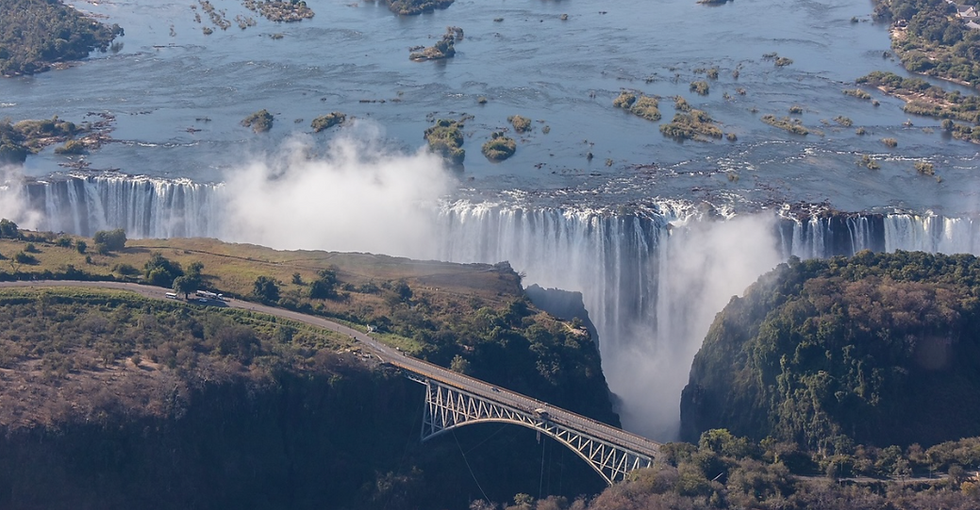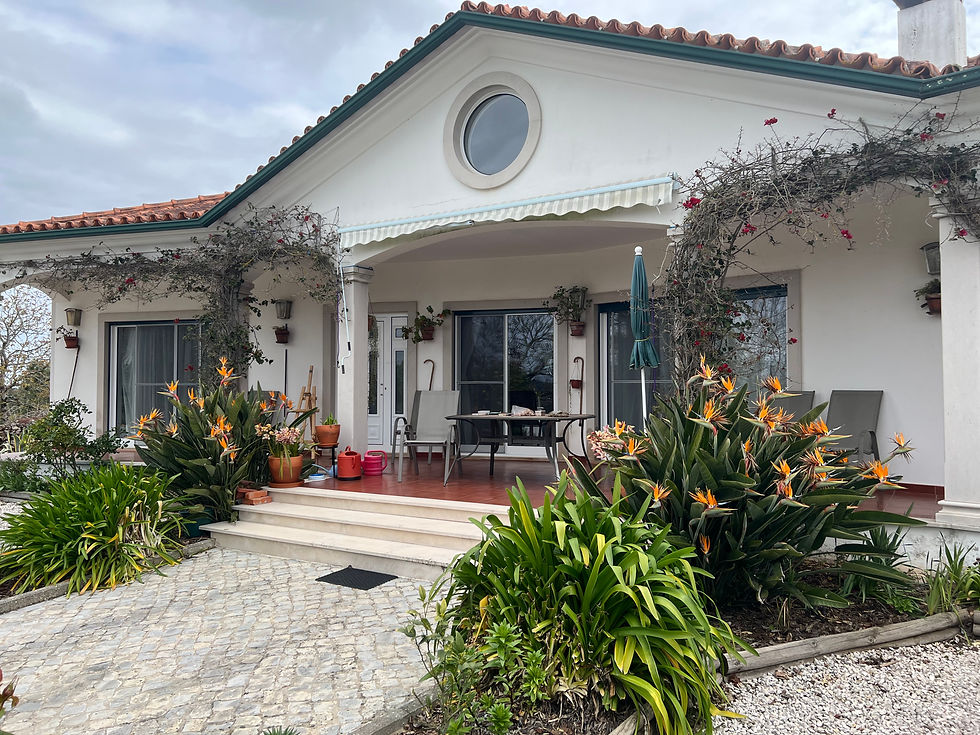
Instigating the subject of this week's blog was brought about looking at what is going on in European politics, admittedly more an abstract view than personal involvement. Always easier to throw stones from a distance. It seems that the British politicians and media have decided the breaking of Covid rules is more important than what is going on in Eastern Europe or the economy, inclusive of the cost of living. While the Brits are self-destructing under the leadership of irresponsible press, in Europe the lies are much greater with much more malice to the detriment of Ukraine’s struggle for freedom. Those that have been following events in Germany will know of the lies uttered by their Chancellor about weapon supplies to Ukraine. These in my mind put Partygate into trivial insignificance. Scholz not only lies to his people but happily tries to pan his own poor judgement on others’ shoulders including NATO and America, furthering misinformation to all and sundry. As for Scotland and Ferrygate, the lies around that debacle make Boris almost look like no more than a naughty schoolboy than an irresponsible politician. I do agree Boris’s utterances make him look like a buffoon but are insignificant in comparison to the lies out of Germany and Scotland. At least Boris’s utterances are probably down to his arrogant stupidity while Biden’s are likely down to senility and Germany’s down to greed and attempts to cover up poor policy decisions under the Governance of the previous long term incumbent.
“In reflection, most of my bad decisions in life have been made on the back of petty prejudices and misconstrued perceptions rather than considered thought. It would appear this is now the modus operandi of the Western press and opposition politicians rather constructive critique.” - Peter McSporran
I have always considered myself lazy, especially if instructed by a third party to do a task I do not particularly like. This included in the home in my early years, most especially at school and in later life as a farm manager where I sort of ran from selfless enthusiasm in my work to downright avoidance. The exception to all of this was when it was something I enjoyed; try keeping me from doing things on the farm at a very early age. The same with rugby or sailing at school but do not send me on a run. Administration was to be avoided and luckily I always have had capable people to ensure my businesses were looked after in a proper manner adhering to the all-too-many statutory requirements.
In retirement, I feel I have reverted to being close to the laziness of my childhood. No farm to entertain my day anymore. I have therefore adopted our garden as my main interest. I do read and watch some TV in the evening but what do you do with your days? You just cannot spend the whole day at lunch no matter how hard you try. Especially as I no longer have the aid of alcohol to stimulate the conversation or speed up the time. As I have stated previously;
“There is nothing like alcohol to speed up the clock, even when the fare or the company is poor.” - Peter McSporran
I can remember clearly how I resented my father when he would instruct me to mow the lawn rather than feed the cattle or check the sheep on the farm. I had no interest in flowers although he would sometimes send me off with a scythe to cut thistles or rushes, the most boring and antisocial job on the farm in the old days. If it was a slack day on the farm and the weather fine; cut weeds. If it was raining heavily; clean sheds. In fact, we would still cut weeds in the perpetual drizzle of Scotland. Both jobs I felt were designed to dampen the joys of farming life. For the past fifty years, herbicides replaced the sweat and blisters inflicted by the scythe. Now I see those that have never carried out this task are pressing us to return to the use of the hoe or the scythe for the good of the world. The same people are unlikely to give up their computer for a pencil nor apply their brain to carry out simple arithmetic.
My admission to enjoying gardening in my twilight years is not self-motivation that has me out pruning the scrubs, deadheading the roses and weeding. It is also the neighbours who scrutinise my efforts. A French gentleman walks several kilometres just to check on my efforts. Some will lean on the gate and compliment me (Rozanne also involved, not me on my own) while others I have learned, discuss our efforts behind closed doors. This means that a standard is expected of our gardening endeavours that have me pulling the weeds as they appear and watering when necessary. To Rozanne’s disgust, I also have trouble recognising the emerging flowers and confusing them with weeds. In my view, bare soil is better than weeds. Weeds are defined as unwanted plants, I do not want weeds, so the emerging plants, flowers included, from time to time have to sacrifice themselves to the cause of my idea of a perfect garden. I am always buying seeds and plants at the garden centre to replace those I remove in error, although the garden’s beds are slowly filling. I never adhere to the garden budget. On reflection I am therefore still lazy when it comes to the garden h

owever the real threat of a village full of gardening and farming peers' critique ensures my motivation, especially on those days I lack the enthusiasm.
In my reflections, I should also mention my health. I have no real answer to the improvement in my health recently. After returning from Africa with a very bad dose of ‘the runs’ the cause of which was never diagnosed, with a very painful week mainly spent on the toilet. Following my recent colonoscopy, my stomach is now back to preoperative status. Yes, back to how it functioned before my cancer. Why after fifteen months I do not know. I mentioned before that going to the toilet following my surgery was no longer a pleasure. Now I can once again look forward to my peaceful visits to the toilet. I will discuss my present happy status with my doctor and surgeon on my next review in early June. I am not expecting any answers although my own theory is that I had some form of blockage or twist that the inflation procedure related to the colonoscopy cleared. The difference is life-changing.
“The mind has a great ability to allow us to quickly forget the extent of our suffering caused by trauma or illness. Unfortunately, not so the pain of the heart.” - Peter McSporran
I remember clearly when I was about eight years old my father picking me up from yet another futile brown trout fishing expedition on a local tarn, when out of the blue he said to me, “Son, without your health, all of your wealth will be worthless.” It was not said in any context of our conversation. I can only think he was reflecting on my mother's health who at that time unbeknown to me was terminally ill with cancer. His words were so true.
What I am saying here is my present health status ensures I am regaining my confidence to once again start looking to new adventures in life. Tentatively they include the Algarve in May, the Highland Show, in June a college housemates reunion in Scotland followed by tuna fishing in July.
“Reflect yes, but it is wise not to ponder too long in the past.” - Peter McSporran
Rusape Boat Race

I soon settled into my farming routine at the Edwards. Les, Mr Edwards senior, also had a fondness for carrying out the harvest and post-harvesting of seed maize. The post-harvesting process includes shelling, handpicking, grading into twelve different sizes and shapes, treating with seed dressing, packing and labelling done rigidly, with no variation of sequence. All easily written down, but an arduous chore. Without a good system, the process could be the bane of your life as I learned at the Smiths. Les had a system. His secrets were this; do everything by hand, the ideal job for the ladies on the farm as their children could accompany them. The men would hand-harvest; this was the harder, more physical task. Clean disease free cobs only into bags. At the shelling stage, allocate a woman to do each bag, further handpicking and presentation for inspection before adding to the clean ungraded seed. Each lady had to produce a certain amount of seed per day. Any extra was paid for. This was an incentive to do more than the average task. Nowadays task work is frowned upon. For me, a wonderful tool enjoyed by the workers, especially the women as it allowed them to work within hours to suit their domestic life. Those below par workers soon gave up with the better workers receiving as much as three days' pay in a single day. Once cleaned, the seed was graded and dressed.
There were of course statutory inspections before and during each process. Les taught me to ensure everything was perfect, sloppy work would incite the inspectors into being more thorough in their task while the production of good seed would drop drastically. Seems simple but at my previous place of employment, our first mistake was harvesting all the grain and piling it into a heap where the good was contaminated by the bad. It was also a lot easier to fumigate for weevils in bags, these pests could get into the crop in the field before harvesting and when added to a stack, multiplied at an unbelievable rate.
Call-ups, work and more call-ups were the rule of the day. I now lived on the other side of Salisbury from my girlfriend, Diane, so dates were less frequent requiring over an hour of travel each way. The same journey nowadays, due to traffic and poor roads would probably take two hours, that is progress in Africa.
Eventually, in early 1976 Diane and I got engaged and were due to be married that September.
Meanwhile, every time we soldiers returned from call-up after spending six weeks together in the bush, we would set about getting drunk for the first twenty-four hours before joining our families and loved ones. In the bush when we returned from patrol we were only allowed two beers, definitely no spirits, therefore on hitting the ‘Bright Lights’ as Salisbury was known; to us, the pub, any pub was the first port of call. If you were from Bulawayo, you did the same in ‘Skies’ as it was known by us in army slang. As OPA’s (outside postal areas), most of us living outside of the city, we would book a number of rooms at the Monomotapa Hotel, just recently built, our favourite residence with a number of good restaurants and pubs. Ventures out to nightclubs after a bush trip normally ended in brawls with other units. If soldiers cannot fight the enemy, they will fight each other. I do not know why they adopted this Irish trait.

There were a number of recreational areas where we would meet with other troopies and their girlfriends on a weekend, these included Mermaids Pool, Lake McIlwaine and on occasion but rarely, Caribbea Bay Hotel in Kariba. Local pubs known in Salisbury were the Oasis from 1975, the Round Bar at the Coq d’Or, and Jameson Hotel. A steak at the Khaya Nyama at Park Lane, tripe at the Red Fox or cocktails at the Ambassador Hotel. For a really fancy Saturday night out with your girlfriend or wife, a dinner dance at La Fontaine, Meikles Hotel or the Highlands Park Hotel.
Enterprise also had a very active country club complete with golf course, tennis, bowls, squash and yes, rugby. In between call-ups I managed a couple of games and attended training nights on a Thursday which consisted of thirty minutes running up and down the pitch, we were all fit from the war anyway, followed by four hours heavy drinking in the pub telling war stories.
One weekend adventure that particularly comes to mind that year being early 1976 when I was to take part in the Rusape Boat Race. Peter Margesson, ex Gwebi College and an army buddy convinced me to take part. We were to be part of the Marandellas Rugby Club boat/raft team. Boats for this race had to be homemade, made from a material of choice, mainly tractor tyre inner tubes from what I can recount. These could be from one man to a whole rugby team capacity. The latter could have as many as twenty tubes lashed together. The race took place on a Sunday in late Februaryl, as this meant the river would be flowing well following the rains. We duly set off on the Saturday to spend the night with our team in Marandellas. My night came to an end in the early hours of Sunday when I fell from the rafters in the Three Monkeys Pub. On falling, I caught my back on the edge of the bar counter. One of my party tricks was to hang from the rafters or other suitable appendages with my toes, normally successfully. That night to everyone's amusement the beer must have affected the clinging strength of my toes. No problem, no pain so the next day set off to Rusape for the race. These days were always eventful, full of fun. Unfortunately in the previous year tragically a girl drowned, luckily a rare accident. Our trip went well although I cannot remember if we finished or not. I do recall the winners that year were a local legend and farmer Ken Ziel and his son Kenyon.

Sometime in the evening, after dark, therefore after curfew, I set off on the hundred and eighty kilometre home journey finally coming to after a few hours looking at the lights of a town slightly familiar but nowhere near home. At first, I thought it was Jurui Township at the edge of our farming area but on closer inspection, I realised I had travelled a further sixty kilometres all the way through the Mangwende Tribal Trust Land to Mwera. This was one of the many bases we used on call up well inside the operational war area. Wishing to not miss work the next day I immediately turned around and hoped there were no ambushes on the road on my return, as obviously there had been none earlier. The devil certainly takes care of its own. The biggest danger would have either been the terrorists or the Rhodesian troops of mixed race, whose tasks were mainly guarding bridges or manning the relay stations. Chances were, they were mellow from a little dagga and fast asleep.
For me the next day, Monday, my Saturday night frolics had caught up with me. My back was completely covered in a massive bruise and I could only walk as Quasimodo did in The Hunchback of Notre Dame. Les offered to attend to my injury which I politely refused.
Mozambique Inspirations
I should have mentioned earlier when Han and I started to look at projects in the Beira Corridor there was one large grain purchasing and storage company recently formed there that was catching everyone's attention. DECA, which was owned in those early days by Agriterra, a company set up on AIM with attachments to a consortium with mining interests in the DRC. The business was run like a military operation. Under the management of Euan Kay, the most singularly disliked man in any community I had ever met. He never did me any harm although I rarely came across a local with a good word for him. They purchased grain and used old EU military 4x4 vehicles to collect and deliver to a silo complex in Chimoio. Money seemed no problem, aircraft and helicopters were a common sight overhead. To pay the smallholder farmers, they used helicopters to deliver cash, they said for security reasons. Most farmers never delivered much more than half a tonne so would only be expecting about $70 each at most. They also set up a large beef-producing unit, abattoir and marketing company called MOZBIFE. Another business plan built on dodgy assumptions as cattle were short in the area since the war days along with the TB endemic making most animals unfit for human consumption. Needless to say, the business, while still in operation, is under new ownership and management no doubt with a new business model although from their latest reported financial results still running at a large loss.
In the face of all this money and power, we came across an ex-tobacco extension manager who tried and did convince us that he could compete in this grain market by setting up an integrated maize buying and processing company. He argued his business model, which included input supply, extension services, logistical support and a fair price would succeed if he could find a key off-taker and the funding. This he did in identifying the breweries' requirement for grist, as of then being sourced expensively from South Africa. Grant Taylor, if you meet him is a self-deprecating man, like many successful men with a strong and supportive wife. From time to time you may wonder who is boss. They make a great team, supported by a long time extension manager in the form of Moses Muchayaya. Chris Isaac, the AgDevCo country director really took their story on board and I am happy to say the relationship has grown into a large successful company run just as Grant envisioned it.
Shortly after meeting Grant, who at the time was going through a tough divorce, took his two boys on a fishing trip to Cahora Bassa where unfortunately he suffered a massive heart attack. Unbelievably they managed to casevac him to South Africa where they informed him his survival depended on him receiving a new heart. South Africa as many will know were pioneers in heart transplants. Fortunately for him, he did not have long to wait for a new heart that was duly implanted. Shortly after that, I called him to facetiously ask, “Have you had a change of heart about going ahead with the business?” He emphatically said, “No!” We funded him, he and Alison have not only succeeded but substantially expanded the business from a ‘greenfield’ start-up into a large grain trading and milling company. He lives in a very bad mosquito-infested area where malaria for him with low immunity would have serious consequences. He chooses to ignore this danger, as he does the many others. He and Alison found themselves in the middle of a Renamo rebellion a couple of years ago where most trips would mean the likelihood of ambush. Both are examples of fortitude, courage and tenacity. What more can I say.
Disclaimer: Copyright Peter McSporran. The content in this blog represents my personal views and does not reflect corporate entities.
コメント